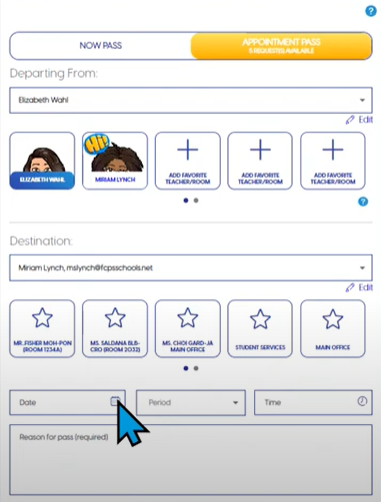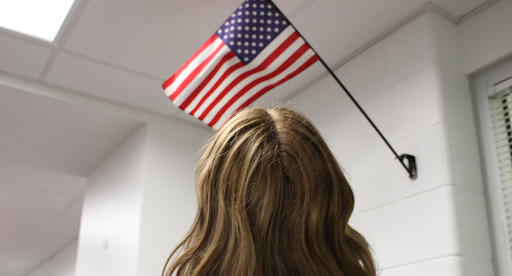Electronic hall passes: Admins answer to unruliness

Photo courtesy of Brendan Talbot
E-hall passes allow teachers to monitor and control students movement and activity.
The electronic hall passes, or E-pass, system will be launching at WS this week. The administration aims to curtail class skipping, tardiness, and “frequent flyers” by implementing these new passes.
Recently, the school and county have experienced a slew of vandalism, truancy, tardiness, and other improper behaviors. All the way up, from K through 12, students are acting out in higher numbers than ever before. The administration believes the pandemic is at fault.
“[Students] had an unprecedented amount of control over what happened to them, institutional control over what happened to them [during virtual learning],” said principal Michael Mukai. “They could get up when they wanted to, turn on class when they wanted to.”
During the pandemic, students became accustomed to lax schedules and self-determination. They aren’t used to the kind of strict schedules school requires. Students just don’t care about many of the rules anymore.
“I think students still see [following some rules] as not that important,” said Mukai.
Since the pandemic, many basic school rules have fallen out of fashion and have ceased to be enforced. Hats and hoods technically aren’t allowed under the Students Rights and Responsibilities (SR&R), but walking around the halls today, one would barely believe it.
Some of the rules that students do not seem to care about anymore relate to truancy and tardiness. Students are skipping classes and staying in the halls later than permitted. They often abuse bathroom privileges or passing periods. Rudimentary measures, such as signout sheets, have been implemented by the administration in an attempt to lessen this issue, but the signout sheets have brought just as many problems as they supposedly solve. Sorting through hundreds of papers and sign-outs whenever an issue occurs is a daunting task for security and incredibly inefficient. Additionally, students who don’t care about the rules, wouldn’t care to sign out.
E-passes aim to address these issues in a modern way.
“Going from paper to electronic is kind of the way of the world,” said Mukai. “[Electronic hall passes] are just the signout sheet, we just want accountability.”
E-passes’ primary purpose will not be to catch students or limit time spent in bathrooms, but merely to hold those abusing the privileges accountable without punishing those following the rules. These E-passes have already been implemented at nearby schools to varying degrees of success.
“The system can be buggy, and it’s a little too invasive,” said Lake Braddock Secondary School junior Jacob Fitton.
Administration believes many issues encountered at other schools won’t be encountered here.
“The first schools to pilot the program used the default settings; you can only have two passes a day, only five minutes before the pass starts flashing to say you’re out illegally. We’ve been able to eliminate these issues because of [other schools’] experiences,” said Mukai.
E-passes will be implemented with custom settings tailored to our school. Things like bathroom time limits and pass limits will be changed or removed entirely. The administration believes this will result in a better system for students and teachers.
“[The administration] is trying to catch up. We think students will react better than our teachers will because you guys are used to using your phones and apps and all this stuff,” said Mukai.
Overall, the administration hopes this new policy will result in accountability for those who misbehave without having to punish those who follow the rules.
“We’ll continue to work with students and get input from families and other schools that have used [E-passes] more as we adjust, but right now, it’s just an electronic sign-out and sign-in sheet,” finished Mukai.








